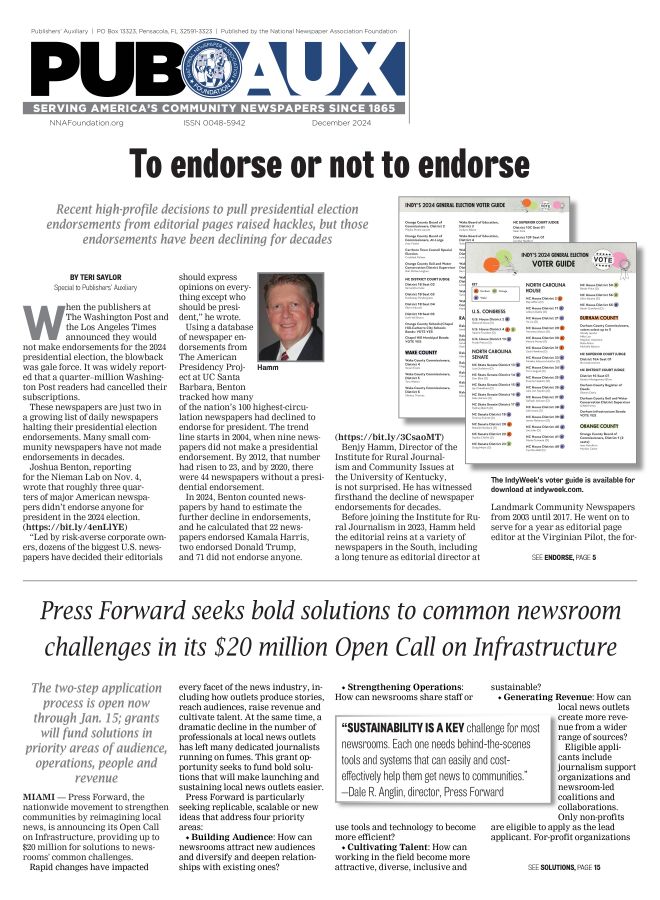National Newspaper Association applauds move to repair FOIA
Tonda Rush
Mar 17, 2021
The National Newspaper Association this week endorsed legislation proposed by Senators Charles Grassley, R-Iowa; Patrick Leahy, D-Vermont; and Dianne Feinstein, D-California, to restore the federal Freedom of Information Act’s promise of access to important federal records.
The Open and Responsive Government Act of 2021, S 742, would fix a hole in FOIA created by the US Supreme Court in 2019 when it allowed retailers to claim confidentiality in how taxpayer-funded food benefits were used.
In Food Marketing Institute v. Argus Leader Media, the court prevented a Sioux Falls (SD) Argus-Leader reporter from obtaining from the US Department of Agriculture the annual merchant revenue totals on sales to Supplemental Nutrition Assistance Program (SNAP) beneficiaries. The reporter sought the records after noticing during the Great Recession that many retailers in his market had retrofitted their stores to provide groceries meeting SNAP benefits standards. More than a decade of litigation ensued in which the newspaper won two appellate court victories before the food industry finally prevailed at the Supreme Court. The records were never released by the USDA.
The Leahy-Feinstein-Grassley bill would overrule the high court’s holding that eviscerated a long-standing FOIA rule making federal business records public unless release would create substantial harm to the competitive position of a business claiming confidentiality. The court watered down the standard to allow businesses to block release of many federal records.
“There was a lot wrong with that case,” NNA Chair Brett Wesner, president of Wesner Publications, Cordell, Oklahoma, said.
“First, the records the newspaper sought were about a taxpayer-funded federal benefits program," Wesner said. "If there is anything FOIA is meant to accomplish, it is to create transparency in systems paid for by the American public. Second, usually business confidentiality is about information created by businesses, like formulas and product designs. These records were not created by or owned by the businesses. They were created and managed by third-party data aggregators whenever a SNAP beneficiary scanned a purchase card. USDA kept those reports, created by computer systems and not owned by the businesses.
“Finally, this case became a proxy battle about government disclosure interpretations by federal courts over the last 40 years. Without good reason, the high court broadened a disclosure exemption that undermined the intent of Congress when it passed FOIA in 1966, had strengthened it in 1974 and has reaffirmed in many updates over the past 50+ years. Now we urge Congress to once again speak up for the public’s right to know.”
The Open and Responsive Government Act would codify that federal records obtained from businesses should be disclosed unless they would create substantial harm to the competitive position of a business.









